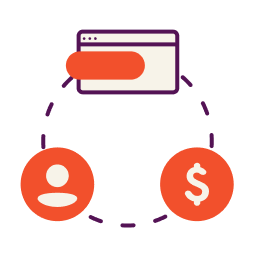Expand your business ideas with creative financing.
Most every small business needs loans and other types of financing, but as a retailer you’re in a unique position. Not only do you need capital to purchase and develop a storefront, but you also must secure inventory to last until you have the cash flow to purchase more.
Simply put, if you’re unable to get the funds you need, your business can’t perform. This isn’t an issue that is tied to startups alone. If your inventory is light and the holiday season is around the corner, you may need to borrow funds to stock up before the busy period.
One easy way to make sure you can always access capital at the best terms is by keeping your business credit scores strong. Both lenders and suppliers use this information when deciding whether or not to offer you financing. Having access to your business credit report is crucial for you to know where your business stands.
Keeping your supply chain moving
Although loans and credit cards are the first things you’d probably associate with business credit, your company’s financial history also affects transactions with your suppliers.
If you own a toy store and need to acquire 300 of the most popular action figure on the market, the distributor may cut you a deal that allows you to finance the purchase. However, this decision will hinge upon your business credit report and score. If the supplier sees that your business has a solid repayment history, it will trust your company can repay its debts and extend the offer.
Securing loans for peak business and restructuring
Getting the financing your company needs is critical during the busiest times of the year. As a retailer, your peak periods probably include winter holidays. You can’t afford to run out of inventory during these times.
Unfortunately, many businesses have found themselves hard-pressed to secure a loan when they needed it most:
A 2012 report from USA Today highlighted a comic book retailer who sought funds to bulk up his toy inventory for the holiday season but met rejection with several banks before finally finding success with an alternative lender–at higher interest rates.
Since the Great Recession, this type of story is all too common. Fortunately, you can take advantage of creative ways to get financing.
Types of financing available to retailers
If you want to start a retail business, you can access a couple types of financing lenders specifically gear toward your industry.
Retail Loan. This financing method functions in the same way as a home loan. However, the funds go toward commercial space for your business. You can also use them to purchase strip malls in addition to a single storefront for your business.
This lets you rake in some rental income from tenants to pad your earnings at your store. As well as examining your business credit score, lenders will evaluate the target property, the surrounding area and sales information from current tenants to determine if a location can supply enough income to repay the loan.
Inventory financing. Under this agreement, a lender provides funds so you can purchase items to sell at your business. This inventory functions as collateral for the loan, which means the lender will repossess unsold items in the event you default on the loan.
This lets the lender recover some of the funds it would otherwise lose, which makes them more willing to lend. Approval for this type of financing relies on proving to the lender how likely it is you can sell the inventory. This is because the lender is taking the risk it won’t be able to sell the inventory either if you default.
This article was originally written on January 29, 2015 and updated on October 20, 2020.



I plan to open a small retail shop that will be selling ( to start with ) small Music Instruments to the local community, to schools (to get or start the love of musical instrument), young musicians starting a new band and to individual wanting to learn an instrument that doesn’t cost a fortune eg: Ukuleles, trumpets, recorders etc and assosiated smalls for the instruments.